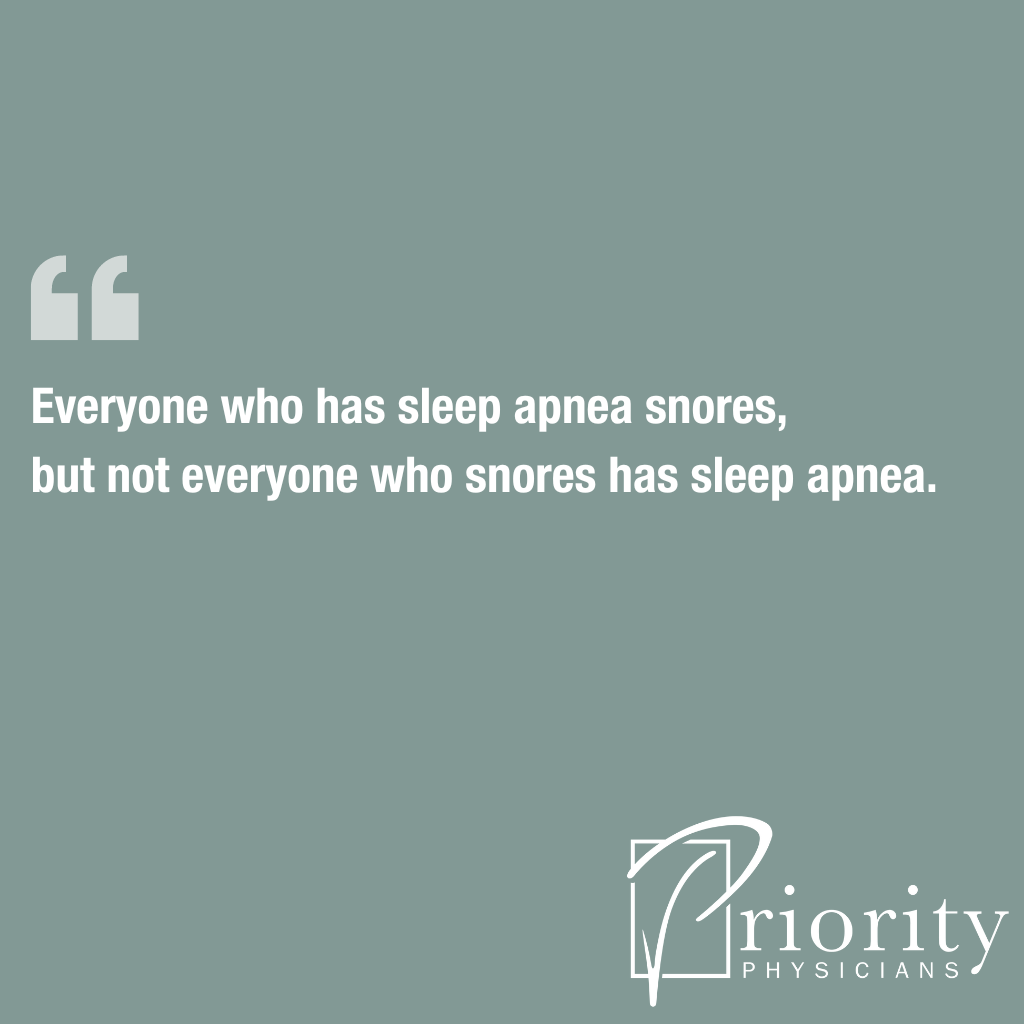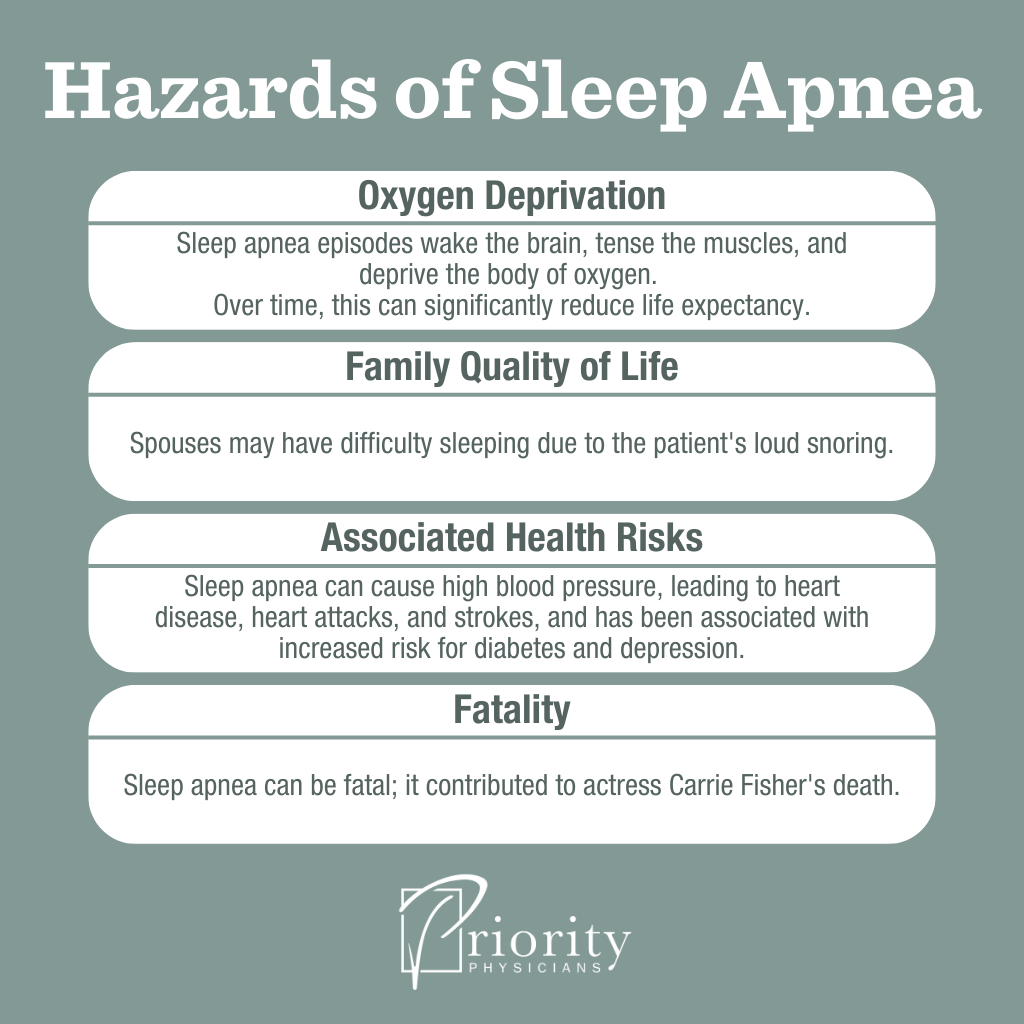“Why do I sleep with my mouth open?”
If you frequently wake up tired, with a dry mouth, or with a spouse who complains you’ve been snoring, you’ve likely asked yourself this question.
There are several reasons you could be sleeping with your mouth open. Some of the most popular causes include anatomy — perhaps you have narrow nostrils — and issues with congestion, such as allergies or a sinus infection.
But perhaps the most harmful cause is a chronic condition known as sleep apnea, which, if ignored, can be lethal.
Why Do I Sleep With My Mouth Open?
Let’s answer that burning question — “Why do I sleep with my mouth open?” — in the context of snoring.
Your body needs air all the time. If your body isn’t getting enough oxygen through your nostrils while you sleep, it adjusts instinctively by opening your mouth.
During certain stages of sleep, the soft tissues in the neck, specifically the trachea, relax and can even collapse. Snoring is the noise caused by air flowing through the flaps of soft muscle in a relaxed trachea and throat.
Forty-five percent of adults snore occasionally, as estimated by Johns Hopkins Medicine, and the medical community hasn’t come to a consensus as to whether this is normal.
Personally, I believe snoring can be normal for you; however, it becomes worrisome when combined with other factors. Typically, these factors indicate sleep apnea.
Snoring and Sleep Apnea
Sleep apnea is characterized by repeated gaps in breathing during sleep. The person stops breathing for upwards of 30 seconds — sometimes as long as a minute — before choking and catching their breath again.
During normal sleep, the body cycles through different sleep stages. A person who suffers from sleep apnea can’t cycle through all those stages properly because they can’t stay asleep long enough. The person may be unconscious, but their body isn’t getting the rest it needs because it’s frequently being choked.
One analysis suggests nearly a billion people worldwide have sleep apnea. In the United States, roughly six million people have received a sleep apnea diagnosis, though the American Medical Association estimates as many as 30 million people actually have the condition. Men develop sleep apnea more often than women, though a woman’s risk increases after menopause.
Everyone who has sleep apnea snores, but not everyone who snores has sleep apnea. Sonorous snoring in particular is a defining characteristic of sleep apnea — so, not only does the patient not get any rest, their spouse or sleep partner doesn’t, either. If you snore, even softly, ask your doctor if you could have sleep apnea.
Many assume sleep apnea is caused by being overweight. This makes sense: 50 extra pounds of fat on the body can contribute to a compressed trachea when you lie down. However, weight isn’t the only cause; there are other reasons a person might have sleep apnea.
You can have zero pounds of excess fat on your neck and still have sleep apnea. It just depends on how relaxed the tracheal muscles become.

Hazards of Sleep Apnea
Instead of asking, “Why do I sleep with my mouth open?” ask instead, “What can happen if I continue to sleep with my mouth open?”
Untreated sleep apnea poses many (perhaps surprising) problems. First and foremost, sleep apnea can kill. Movie buffs may remember that sleep apnea contributed to actress Carrie Fisher’s death, according to her medical examiner.
Sleep apnea episodes, often followed by microarousals, wake the brain, cause the muscles to tense, and deprive the body of oxygen. Some sleep apnea sufferers experience hundreds of microarousals per night, causing significant sleepiness during the day. Even more seriously, suffering from episodes of low or no oxygen every night over years reduces life expectancy.
This is also a quality-of-life issue for the whole family. Your spouse can’t sleep if you’re snoring loudly, and your next vacation may be ruined if your family has to share a single hotel room.
For the patient, sleep apnea causes high blood pressure, which can lead to a host of other concerns, including heart disease, heart attack, and stroke. The Centers for Disease Control also notes a strong connection between sleep (or lack thereof) and chronic conditions such as diabetes and depression.
Diagnosing Sleep Apnea
If you snore, sleep with your mouth open, and/or are consistently exhausted during the day, ask your spouse or sleep partner to monitor your sleeping at night. For example, I diagnosed sleep apnea in my seven-year-old son just by watching him sleep and monitoring the gaps in his breathing.
A doctor will be the one to officially diagnose sleep apnea and help you find the right treatment. We no longer use sleep labs or send patients to a hospital for testing, as we’ve learned those methods don’t provide the most accurate results. Instead, we send the monitoring equipment to your door to be used in the comfort of your own bed. You don’t even need to change your nightly routine!
For the most accurate test results, we recommend wearing the equipment for three nights. At the end of the testing period, the equipment is packed up and sent off for analysis.
If the results show that a patient of ours has sleep apnea, Priority Physicians helps to find the best treatment option. Gentle air pressure administered during sleep (typically in the form of a nasal Continuous Positive Airway Pressure, or a CPAP, device) has been shown to be effective in the treatment of sleep apnea. CPAP devices are commonly covered by insurance for patients with diagnosed sleep apnea.

Why Do I Sleep With My Mouth Open? Final Thoughts
If you often wonder, “Why do I sleep with my mouth open?” consult your doctor and ask whether sleep apnea is a possibility. Since this condition can be serious and often goes undiagnosed, it’s a good idea to at least consider it as a possibility.
If sleep apnea isn’t part of the problem, you and your doctor can investigate other potential causes, such as chronic nasal congestion.
At the end of the day (no pun intended), a good night’s sleep provides an important foundation for everything else in your life. It’ll keep you — and your family — healthy and happy.

